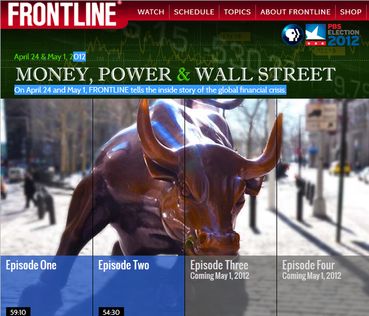- 10,459
- 8,935
- Joined
- Mar 4, 2011

Like the title says.
I didn't even come remotely close to doing anything to celebrate the 4th.
So I'm watching Frontline and it's like wow.
Basically what caught my attention was how the Investment Bankers for these large banks reigned havoc through selling derivatives to governments around the world that were comparable to the sub-prime lending to prospective homeowners here in America before the bubble.
In the close to ten years since the glass-steagall act was lifted, we ended up financially back to the same economic conditions and symptoms as the great depression.
Plus the creation of the Euro and pretty much all of the European member countries cooked their books and misrepresented themselves in order to gain membership. There's a quote in the documentary along the lines of "If we didn't join the Eurozone, we would've had to look to North Africa for financial stability"
http://www.pbs.org/wgbh/pages/frontline/money-power-wall-street/
